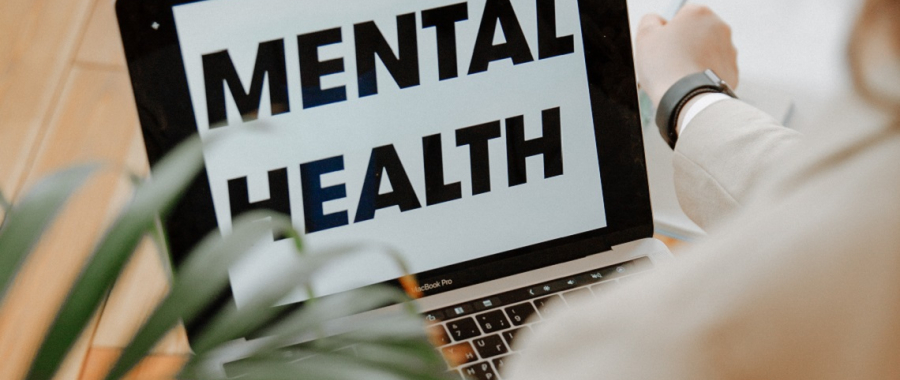How to Manage Your Mental Health During a Crisis
It is now required that a significant amount of the population will be completing their jobs from home, only leaving the house for essentials.
In this guest blog, Sophie Thomas, mental health care professional, reflects on managing your mental health during a crisis and provides tips on improving your health and wellbeing.
Research [1] shows a connection between social isolation and loneliness, as well as poorer mental health outcomes. Being isolated at home can also cause feeling of boredom and frustration, as well as feelings of anxiety and worry, for example about your finances, your job security and the health of your family and friends. Firstly – this is completely normal. When distressing and confusing life events occur this understandably creates stressful emotions that can be hard to manage. Secondly – it is important that this happens. It means that you are doing all you can to protect yourself, your relatives, friends, and the country.
There is an abundance of resources and helpful guides to help you to navigate the difficulties that can occur during this uncertain period of time. An example of such is the HSE website which gives great research and advice on things that can be helpful for your health and wellbeing.
Helpful tips:
- Identify things that help you to feel calm – if you’re at home music, breathing and relaxation techniques, distraction techniques and anxiety management techniques can all be helpful.
- Connecting with others - This includes spending time with your family - whether this is on the phone, over video calls or distanced communication through a window or across the street. You can also connect with others through websites such as the Mates in Mind Community Hub. This will be really important to help you keep your sense of connectedness and togetherness, and reduce feelings of isolation and loneliness.
- Changing your perspective – try to view the current situation as a different period of your life, even if you did not choose it. There are many positives that can come from this, if we choose to see them. Such as a chance to connect with people in different ways, for example on the phone or over video calls, a chance to spend more time at home, and a chance to work together with your community. It is still possible and very important to connect with others who are meaningful to us.
- Create a daily routine – this may be very different to your usual routine, however it is helpful to prioritise activities that look after yourself. This could include trying a new exercise, using your time to read or research something you’re interested in, or taking up a new skill or hobby.
- Eating a balanced diet – it is likely that with more opportunities to eat throughout the day, our diet can become unbalanced and unhealthy. It is important for our physical and mental health that we are taking the time to gain the necessary vitamins and minerals needed to maintain a healthy lifestyle.
- Keeping up to date with important information will be helpful in managing feelings of anxiety and hopelessness. However, be sure to do this in a balanced way as too much researching can again cause added stress, anxiety and worry, and can negatively affect your mental health.
- Avoiding burnout - Burnout is a state of physical, mental and emotional exhaustion, and is caused by prolonged stress and excessive amounts of work. It’s important that we take note of our levels of stress and amount of work we are taking on, as burnout can be damaging for our physical, mental and emotional health.
Social media and mental health
Using social media is really helpful in these isolative times where you can connect with others who you can’t see face to face. However, it can also create unhelpful anxieties and worries about the future.
Below is some guidance on using social media during a crisis:
- Be cautious of incorrect and misleading information:
- It can be difficult to ignore the constant reporting of COVID-19 and this can make it difficult to get reliable and accurate information. Use reputable sources to gather your information. Some examples are: WHO (World Health Organisation); NHS; and Public Health England.
- Look for the positives:
- Try and seek out the positive stories, and how people are working together to help each other during these difficult times.
- Regularly assess your social media activity. If there are people you follow that are causing you added stress and anxiety, these can easily be muted.
Members of SOCOTEC’s HR team are working to support employees and have undergone Mental Health First Aid (MHFA) training, helping them to recognise crucial warning signs of mental ill health and feel confident to guide someone to appropriate support. Mental Health First Aiders act as the first point of contact for employees who are experiencing mental health issues or emotional distress, offering impartial advice, providing appropriate support and listening in a non-judgemental manner. Please email hr@socotec.com for more information.
SOCOTEC also offers a range of online training courses aimed at improving employee wellbeing from mental health awareness, to mindfulness training – you can view a full list of online courses here.
References
[1] Leigh-Hunt N, Bagguley D, Bash K, et al. An overview of systematic reviews on the public health consequences of social isolation and loneliness. Public Health. 2017;152:157-171. doi:10.1016/j.puhe.2017.07.035






Add new comment